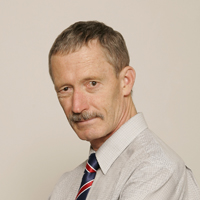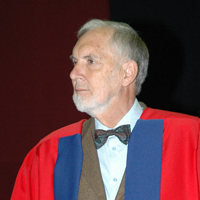Latest News Archive
Please select Category, Year, and then Month to display items
12 October 2020
|
Story Arina Engelbrecht
|
Photo Supplied
 Arina Engelbrecht from Organisational Development and Employee Well-being believes physical activity has a number of benefits for one’s health, including stress relief.
Arina Engelbrecht from Organisational Development and Employee Well-being believes physical activity has a number of benefits for one’s health, including stress relief.
Being physically active plays a big role in preventing the development of mental-health problems and in improving the quality of life of people experiencing mental-health problems.
Treatment for depression
Physical activity can be an alternative treatment for depression. It can be used as a stand-alone treatment or in combination with medication and/or psychological therapy. It promotes all kinds of changes in the brain, including neural growth, reduced inflammation, and new activity patterns are formed that promote feelings of calm and well-being. It releases endorphins – powerful chemicals in the brain that energise your spirit and make you feel good.
Physical activity can be very effective in relieving stress. Research in adults has found that physically active individuals tend to have lower stress levels compared to individuals who are less active. It also leads to improved sleep. When a person sleeps better and feels more rested, overall quality of life improves. They cope better with daily life stressors.
Reduce Alzheimer's risk
Regular physical activity can reduce your risk of developing Alzheimer's disease by up to 50%. It can also slow down further deterioration in those who have already started to develop cognitive problems. It stimulates the brain’s ability to maintain old connections as well as to make new ones.
A study asked people to rate their mood immediately after periods of physical activity (e.g. going for a walk/run, cycling, doing housework) and periods of inactivity (e.g. reading a book or watching television). Researchers found that participants felt more content, more awake, and calmer after being physically active compared to after periods of inactivity.
In conclusion, people who are physically active feel a sense of well-being, feel more energetic throughout the day, sleep better at night, have sharper memories, and feel more relaxed and positive about themselves and their lives.
“Being physically active not only changes your body, it changes your mind,
attitude, and your mood.” – Arina Engelbrecht
Two academics will be sorely missed
2013-04-02
|
 
|
Prof Andrew Marston and Prof Bannie Britz
Photo: Supplied
02 April 2013 |
The staff and students of the University of the Free State (UFS) are deeply saddened by the recent passing in Bloemfontein of two of the university’s most esteemed and renowned academics, Prof Bannie Britz and Prof Andrew Marston.
Prof Britz was the Head of the Department of Architecture from 1992 to 2000. He was renowned in his field, winning numerous prizes for Architecture, including the Gold Medal for Architecture from the South African Academy of Arts and Sciences.
“As professional architect and urban designer, Prof Britz was a much awarded architect who received numerous award of merit from the South African Institute of Architects for buildings erected in South Africa over the years,” said Martie Bitzer, Head of the Department of Architecture.
Apart from his acclaim elsewhere, Prof Britz also played a major role in the day-to-day activities of university’s staff and students. He was responsible for the design of the many walkways on campus and the refurbishment of the Main Building on the Bloemfontein Campus. For the many contributions in his field, Prof Britz was awarded an Honorary Doctorate by the UFS in 2007.
Prof Andrew Marston, a specialist in natural product chemistry and methods associated with the isolation and analysis of medically important chemicals from plants, was appointed from Geneva, Switzerland in 2009 under the UFS Strategic Cluster for Advanced Biomolecular Research.
He obtained a B-rating from the National Research Foundation (NRF) in 2011, and was consequently appointed as a senior professor in die UFS Senior Professor Programme. “He has made valuable contributions to the UFS in terms of teaching and postgraduate supervision, as well as research. In his short stay at the UFS, he already co-authored more than ten papers in international chemistry literature,” said Prof André Roodt, Head of the Department of Chemistry.
His research group was part of a multilateral agreement in the European Union (EU) with a number of African and three European universities. He obtained new research funding from the Seventh Framework Programme of the EU for the Building Sustainable Research Capacity on Plants for Better Public Health in Africa project, from the Norwegian Research Council for bioprospecting and the isolation and structure determination of compounds from plants and algae, and from the South African Rooibos Tea Council.
The memorial service for Prof Britz took place on Friday 5 April 2013 in the Berg-en-Dal Dutch Reformed Church in Bloemfontein. The service for Prof Marston took place in the Trinity Church, Charles Street, Bloemfontein.